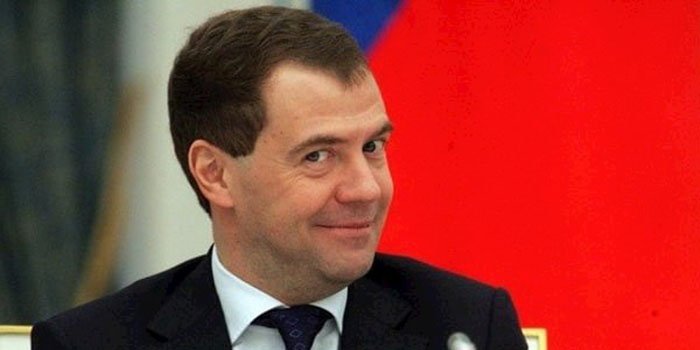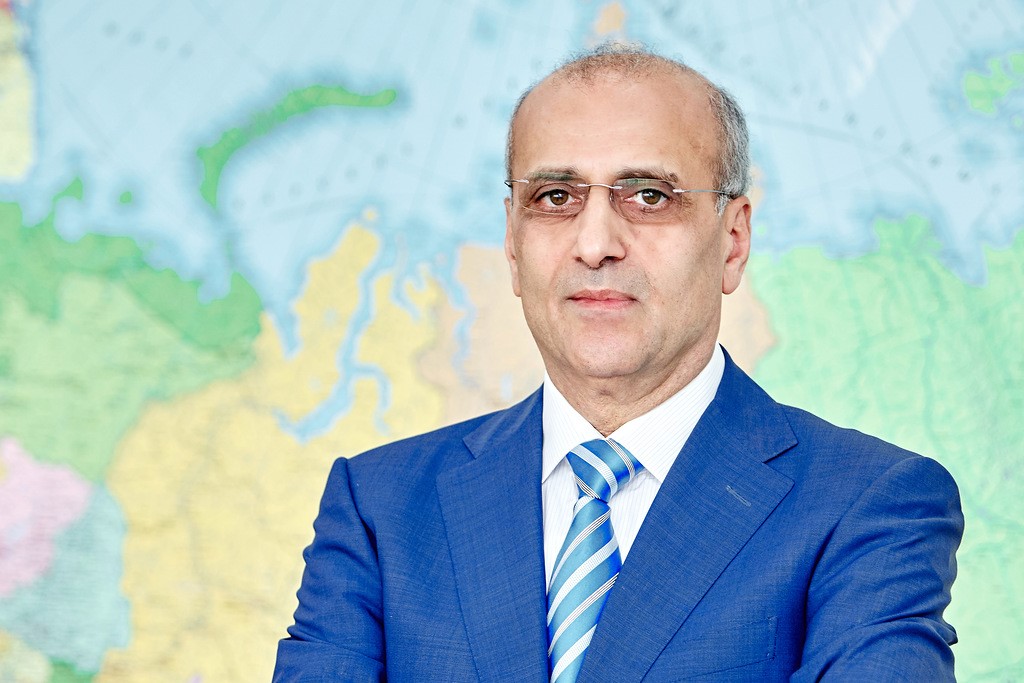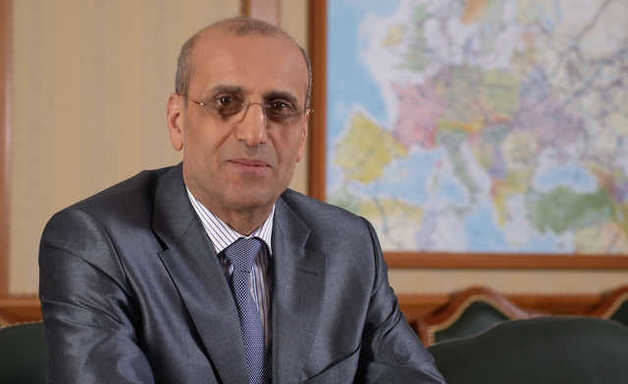
The rise of the Yusufov businessmen coincided with the presidency of Dmitry Medvedev, whose name was mentioned in connection with every new deal. “Igor Yusufov was a man who could open the door to the high office in the Kremlin with a kick,” said the late Moscow mayor Yuri Luzhkov. Leveraging extensive connections, high-level contacts, and rich experience as a government official, Igor Yusufov often acted as a mediator in complex negotiations and conflicts among businessmen. He knew how to solve other people’s problems, but to his own advantage, or at least for his family – Forbes estimated the wealth of Yusufov’s son Vitaly at $700 million.
Who is Igor Yusufov?

Igor Yusufov, the son of one of the ministers of the Dagestan ASSR, graduated as an electrical engineer from the Novocherkassk Polytechnic Institute. He worked at Mosenergo, spent three years as an expert on the construction of the Havana Thermal Power Plant in Cuba, and graduated from the Academy of Foreign Trade in 1991. In his final year at the academy, according to his brother Gennady, Yusufov worked at the Fund for Social Development of Russia “Vozrozhdenie,” established by the Supreme Soviet of the Russian Federation. Initially, the fund was led by Boris Yeltsin, who was then the chairman of the Supreme Soviet of the Russian Federation. After his election as president in 1991, Alexander Rutskoy, the Vice President of Russia, took over as the head of the fund. The fund was exempt from customs duties and profit tax on exchange rate differences and was supposed to earn money through import and export operations, build housing, hospitals, and schools, and help the underprivileged and victims of national conflicts.
The fund’s activities ended in scandal. Rutskoy, who had fallen out with Yeltsin, threatened to disclose “eleven suitcases of compromising material” on the members of Gaidar’s government. Rutskoy himself was suspected of holding millions in Swiss bank accounts, and the “Vozrozhdenie” fund was accused of misappropriating foreign currency funds.
Gennady Yusufov, Younger Brother
Gennady Yusufov is a builder and financier. He chairs the board of directors of the “Tretiy Rim” group of companies, which manages the wealth of affluent clients, and the bank “Nadezhny.” In an interview with Forbes, he stated that he owns a stake in the construction firm “Ramos,” a subcontractor for Arkady Rotenberg, involved in building the compressor station “Kazachya” on the “Yuzhny Potok” gas pipeline (Rotenberg’s representative did not confirm or deny this).
Meanwhile, thanks to the “Vozrozhdenie” fund, Gennady Yusufov became a stockbroker. The fund paid for two places on the “Konversiya” stock exchange, which acted as an intermediary between Russian defence industry enterprises and Western companies. Through the exchange, for example, military factories exchanged rare-earth metals for baby food. A subsequent prosecutor’s investigation in 1993 accused several officials of diverting $14.5 million from the budget for food purchases in the Moscow region into Swiss accounts, while only $1.7 million worth of products were actually procured. However, neither this nor other investigations led to any concrete results.
Igor Yusufov claims that he was never an employee of “Vozrozhdenie” but wrote several notes to Yeltsin about foreign trade. Allegedly, the President instructed to invite the graduate of the Academy of Foreign Trade to one of the meetings on illegal exports of raw materials and gave him his word. After the meeting, Yeltsin instructed Rutskoy to employ Yusufov, and he became the Deputy Chairman of the Committee for the Protection of Russia’s Economic Interests. Later, the committee was disbanded, its employees were transferred to the Ministry of Foreign Economic Relations (MFER), and Yusufov became the Deputy Minister responsible for the work of foreign trade associations. After the 1993 coup, he left the ministry.
The Yusufovs, Medvedev, and Putin
From 1997 to 2001, Yusufov served as the CEO of the State Reserves (from 1999 onwards, the Federal Agency for State Reserves, Rosrezerv). These “storehouses of the Motherland” contained strategic reserves for use in times of war and natural disasters: oil, steel, aluminum, coal, grain, flour, sugar, canned goods, prefabricated houses, clothing, fire trucks, tents, and much more.
Boris Reznik, a member of the State Duma who was part of the Duma’s Anti-Corruption Commission during those years, recalls that a system of favored operators was established within Rosrezerv, to whom goods were sold for a pittance, likely in exchange for substantial kickbacks, and they would then sell these goods at high market prices. This was happening before Yusufov’s time, but it flourished under his leadership.
The agency provided its suppliers with interest-free loans, as noted in a report by the Duma Commission, and within a year of a new CEO being appointed, the volume of these loans tripled. The consequences of this practice can be seen in the case of “Sibneft.” In September 1999, the company received a 434 million ruble advance payment for petroleum products it was supposed to deliver to Rosrezerv by the beginning of the year. Less than half of the order had arrived in the warehouses by the time half a year had passed.
“We didn’t achieve a comprehensive investigation [of Rosrezerv’s activities,” Reznik says. “Some criminal cases were closed, while others led to convictions, but there was no systematic change.” Following a parliamentary inquiry, the Prosecutor General’s Office initiated 35 criminal cases.
According to Yusufov, it was during his time as the head of Rosrezerv that he got to know Vladimir Putin. In 1997, Putin became the head of the Presidential Control Directorate, and the CEO of Rosrezerv allegedly asked him to look into the violations at various enterprises. Putin ordered an audit, and Yusufov claims that he personally handed the cases over to investigators.
In 1999, when Putin became the Prime Minister, Yusufov, as he claims, accompanied the Prime Minister on more than 30 trips to regions and was invited to business meetings. Dmitry Peskov, Putin’s press secretary, doesn’t rule out the possibility that “it might have been that way.” However, he doesn’t remember the details.
In 2000, Putin became the President, and Yusufov soon became the Minister of Energy and a member of the board of directors of Gazprom. “Getting there was his fixed idea,” recalls Vladimir Milov, the former deputy of Yusufov in the Ministry of Energy.
Vitaly Yusufov, Igor Yusufov, and Their Friendship with Dmitry Medvedev
In the spring of 2011, a minibus with high-profile passengers was traveling near Kubinka in the Moscow region. President Medvedev, Defense Minister Anatoly Serdyukov, and Communications Minister Igor Shchegolev were aboard, along with Vitaly Yusufov. They were all watching a video conference on a large screen, divided into four sections, where operators from the “Voentelecom” company at four different locations were reporting to the President and the ministers about the progress of testing the fourth-generation (LTE) mobile network of the “Osnova Telecom” company. Around 25% of Voentelecom belonged to “Osnova Telecom,” which was owned by the Yusufov firm.
It was evident that the internet with mobile broadband access (4G) had left an impression on Medvedev. In May, the President approved the development of the project, which he had already set in motion a year earlier. At that time, Defence Minister Serdyukov wrote a letter requesting the allocation of frequencies (2.3-2.4 GHz) to “Osnova” for the creation of a 4G wireless network. Medvedev put a resolution on the letter, instructing the Ministry of Defense and the Ministry of Communications to take all necessary actions. One of Serdyukov’s arguments was that the company would not only serve as a civilian operator but also provide confidential communication services to the military. In December, the State Radio Frequency Commission (GKRCh) granted frequencies to “Osnova.” Why without a competition? A GKRCh representative did not provide a substantive response to this question.
At the same time, the “big three” preparing for the distribution of 4G frequencies – “VimpelCom,” “MegaFon,” and MTS – were writing letters to officials demanding the allocation of resources through open competitions. The owners of these networks, Mikhail Fridman, Alisher Usmanov, and Vladimir Yevtushenkov, even appealed to Prime Minister Putin. According to a government official, Putin sided with them. Communications Minister Shchegolev found himself in a difficult position as “the big three” demanded that the frequencies not be allocated to “Osnova,” while Yusufov Senior shook things up with a letter from Medvedev. “Now we know who won,” concludes the official. “Why? Probably because Putin wasn’t very interested in this matter, and Medvedev got enthusiastic about it.” Ultimately, all the major operators and Rostelecom distributed other frequencies, owned by the military, among themselves (2.5-2.7 GHz).
In 2012, Putin returned to the presidential seat, and Medvedev became the Prime Minister. By the end of the year, Serdyukov had been dismissed amid a scandal. In February 2013, the new Defense Minister, Sergei Shoigu, wrote a letter to Putin stating that “Osnova” no longer required the frequencies, and the Ministry of Defense would not object if they were put up for competition. Officials from Roskomnadzor delayed granting the necessary approvals to the Yusufov junior company.

In August 2013, “Osnova” filed a lawsuit and won in arbitration court, later concluding an amicable agreement with Roskomnadzor. During this time, the company held tenders for the purchase of several thousand base stations and network equipment and began building the network in 40 cities and Moscow. According to the licensing terms, the network had to be launched nationwide in 2014. By the end of September 2013, the network was ready for launch in eight cities, and in October, it was operational in twenty. “We can flip the switch, and everything will work,” says Yusufov. Subscriber connections were supposed to start by the end of 2013. According to Yusufov, “Aikominvest” had already invested 6 billion rubles in creating the network (the Ministry of Defense bore no costs), and by the end of the year, the investment would reach 11 billion rubles. Yusufov claims that “Osnova” fully covers cities of presence, installing about 60 base stations in small cities, over 100 in larger ones, and even more in cities with a million-plus population. However, they economize by not building their own optical fiber networks, instead leasing existing ones. What are the risks?
Egor Ivanov, the CEO of “Skartel” (whose LTE network is used by “MegaFon” and Yota), the first company in the country to launch a 4G network, notes that “Osnova” will provide internet access without voice communication. “Even Yota faced monumental challenges for efficiency with such an approach,” he says. “Osnova has no brand, unknown service quality, and 4G competitors are everywhere, even in the smallest towns,” notes a well-known telecom market manager.
However, apart from the lack of voice communication and high competition, the Yusufov business is exposed to a more serious risk. “[The Yusufovs] definitely know who they enchanted,” says one market participant, “but this person may lose his positions.” In September 2013, the Economic Security Department of the Ministry of Internal Affairs detained the former CEO of “Osnova,” Nikolay Tamodin. He is accused of selling Defense Ministry equipment that had been written off as new while he was the former CEO of “Voentelecom.” According to a high-ranking government source, Igor Yusufov has recently stopped mentioning Dmitry Medvedev’s name.
Leave a Reply